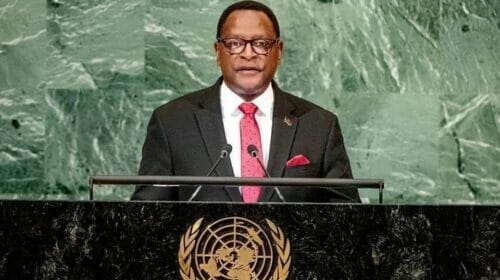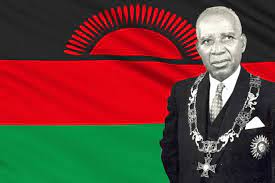Who is breaking the social contract” the governors or the governed? Pt 3

By Janet Karim
“if my people, who are called by my name, will humble themselves and pray and seek my face and turn from their wicked ways, then I will hear from heaven, and I will forgive their sin and will heal their land.” 2 Chronicles 7:14
Ask not what your country can do for you, rather ask what you can do for your country. (John F. Kennedy, January 1961)
In the short time that I was in Malawi this past April 2023, the aftereffects of Cyclone Freddie were very visible; broken fixtures like lamp posts, houses, big cravens on mountains (saddest mount was the former Long Live Kamuzu hill that has in the past 25 years become the home of residents of Chilobwe), and potholes even on our four-way carriage, our pride, the Kamuzu Highway. However, the saddest part is the breakdown in the social contract between the government of Malawi and the governed, also known as the people, the taxpayers. In the two parts of this discourse, it was highlighted that the people that are in the governing system are far from delivering their part in the Malawi social contract. However, equally falling short are the ordinary people, the governed. There is a collective although not collaborative, disuse of the rights of Malawians by Malawian, to Malawians and the governing structures.
Everywhere, while a few law-abiding citizens are going by the rules, the majority are going by unwritten by-the-cuff-of-the-sleeve rules, also known as street rules, where everyone is in charge, not a single police person or any other authority, is in sight. This is of course unless it is rush-hour and then the streets are littered with traffic-controlling officers. These men and women in blue extract money from motorists deemed to have made some traffic violation. Many drivers report having parted with thousands of Kwachas as remedial fees – and no receipt given. Any driver resisting the charge is threatened with having his/her car impounded. Talking about traffic police, why are there 20 roadblocks on the M1 Blantyre to Lilongwe road? And why has the Toll Fees collected on this road not led to fixing the crater-deep potholes? This is fodder for another day.
Turning to the people in the Malawi social contract, Kennedy’s 1961 advice is apt: “…….. ask what you can do for your country.” This challenged every American to contribute in some way to the public good. There are four types of Malawians in our midst that need this advice. These are:
1. The yakali-yakali walk as you wish pedestrians
When my children were growing up, I told them to always look out for cars on the road; today I must tell them to look out for pedestrians on the streets. All the time. Pedestrians are on a vengeance streak, daring car users to bump into them with their cars. Being bumped, instantly turns a pedestrian into a victim who can either face mob justice (dealt with below) or make him or her part with substantial amounts of money – on the spot or in court.
Such aimless walking (also was yakali-yakali in the vernacular), highlights that there are two of us on the streets: those that have cars, and those that do not have cars. The latter, like the menace, rule the roads of Malawi. For certain there are hazardous drivers on our streets, but they are outnumbered by reckless pedestrians.
2. The endless outstretched arm of street vendors (stationary and walk-abouts)
At the dawn of democracy, numerous state structures that checked the flow of rural populations into urban centers, were demolished, overnight, the streets became filled with street vendors, who were joined by numerous city dwellers who had lost their jobs in the privatization program (selling of government shares in manufacturing companies led to either down-sizing or closing of companies and rise in unemployment).
The vendors are out on the street sidewalks (another reason the pedestrian is walking on the road where cars need to move); these are in stationary make-shift shanty town shops while others are walking about with their wares in their hands or on their heads.
3. Disregard for laws, rules, and regulations
Overall, Malawians (remember the warm heart of Africa slogan?) are angry and everywhere are breaking laws to get ahead. Why should they not! The leaders, buttressed by political figureheads, some of whom weld more threatening powers than the president. Tigers’ teeth are exposed and snarling at any human being that crosses their paths. In the two weeks I was in the country, I was scared to look at anybody in the face. We have lost our love of each other as lawlessness abounds, and people set their own rules. Another “no one is in charge here” situation. Especially because not everyone is obeying the rules and regulations that are there.
4. Mob justice on petty thieves
At the outset of my being here, I heaved a sigh of relief when I was told there is no more petty thievery, no one will snatch my purse, cellphone, or dip their fingers in my handbag. But I was mortified at the reason this no longer happens anymore: mob justice.
That is helpful, I think; but then again, this is not helpful. There are bigger thieves out there…
Recommendations
1. Malawi should introduce a monthly youth volunteer day, where the youth are engaged in cleaning up the community they live in. This may include sweeping streets, removing litter, or fixing broken communal structures like broken bridges, bus shelters, filling up potholes and building elderly people’s houses and outhouses.
2. Collaborative political parties’ youth brigades to be set up. These are to work in collaboration with political parties in the community to assess and build up the security (without arms) of their areas. They should collaborate with the police in ensuring that their communities are safe neighborhoods.
3. Let us reintroduce party membership cards. This will ensure the livelihoods of the parties; it will safeguard against outside interference with the running of our political parties. (No one should belong to more than one party).
4. Bring back national companies that have potential to create massive jobs.
5. Toll fees collected must immediately fix the M1 road and build other national roads.
Conclusion
All people living in a country have their roles, duties, and tasks that they must fulfil for the good of the land on the one hand and the good for themselves and community wellbeing on the other. As part of the social contract, the governor (aka the government) needs to do its part, not for selfish gains, but for the good of the inhabitants, the people that put them in the offices, the people who through taxes, pay their salaries. Remember: politicians, you work for us, and we have the power to vote you out of office!
The governed, aka the people must also do their part in paying taxes and other levies to put money in the government chest so that public services (health, roads, electricity, education, security (police and military) are fully funded. They also must obey the government, city, or village laws and regulations. We are a community; we all belong here. We must take care of land called Malawi.
This is what democracy means.




